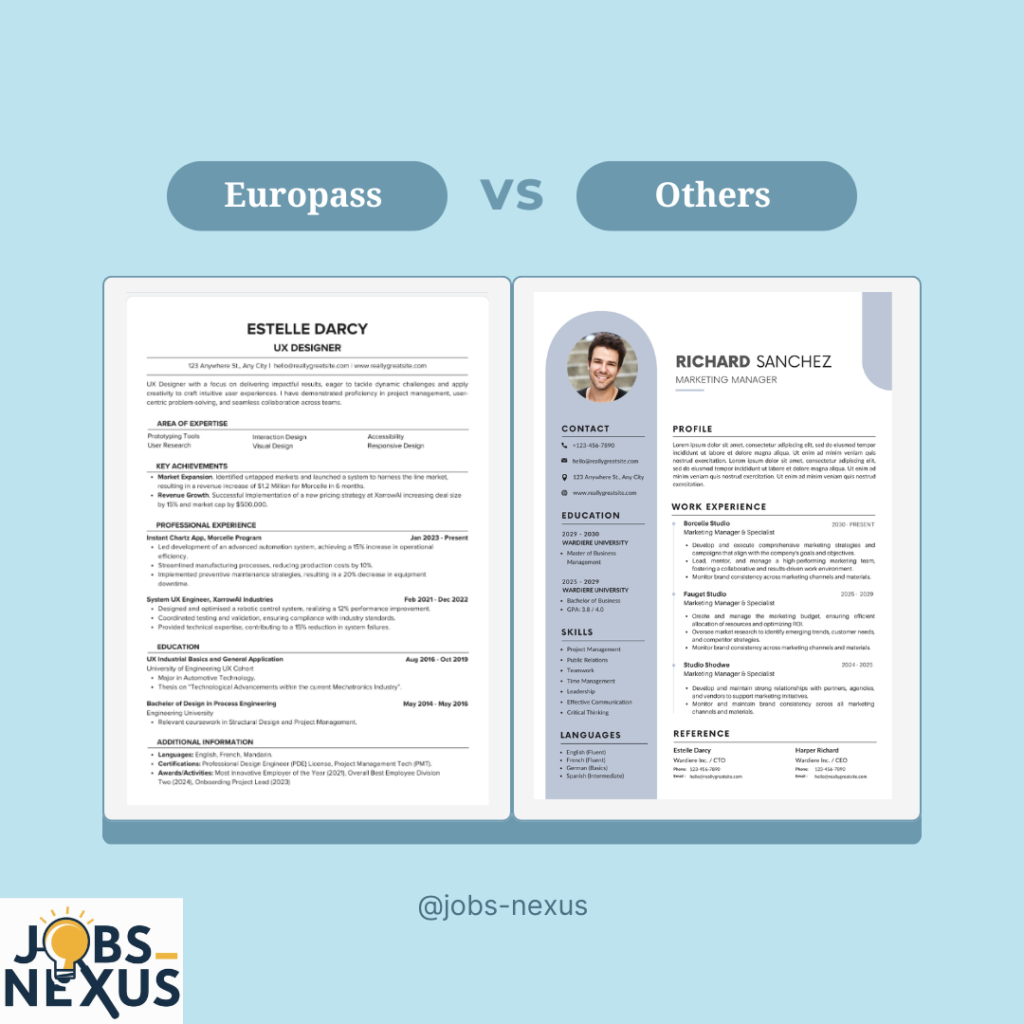The UK job market is a competitive one, therefore a standout CV is always your ticket to getting that dream job. More than just a piece of paper, your CV is essentially a mirror to your professional journey and a sign of what you are capable of performing. This guide will take you through the fundamentals to create a great CV for getting those employers hooked to your CV among the hundreds of other applications being pushed in.
Understanding the Basics of a CV
What is a CV and Why Does It Matter?
A Curriculum Vitae, in short CV, is a detailed document entailing your professional and academic history. CVs, on the other hand, are generally longer and give a better overview of your achievements, experiences and skills. This is important because it is sometimes the only thing potential employers see and so has a huge impact on whether you are invited to an interview.
Differences Between a CV and Resume
While the UK often refers to both a CV and resume, there is a clear distinction. A CV can be several pages long while the resume is typically one to two pages. Knowing this difference, however, will help you better tailor the way you provide your information based on the job that you are applying for.
What to Add and What to Omit in a CV
Your CV should include personal details, a professional profile, employment history, education details, skills and any relevant certifications. Do not disclose personal information (eg age, marital status or a photo) as this is not necessary and can be considered discriminatory.
Research and Preparation

Identify your strengths and USPs
Before writing, you should be able to self-reflect about your strengths and selling points. How are you different from the other candidates? It could be your troubleshooting ability, ability to lead projects or your tech experience — identifying these elements will help showcase your skills which is exactly what you need to stand out on a CV.
Customize Your CV For The Job Description
Given that each job is special, it stands to reason that every CV you send should be unique. Customize your resume to fit the job description, including only specific skills and experience that are applicable to that role. It shows prospective employers that you have taken the time and effort to ensure your skills meet their requirements.
5 Things to Look For in Your Company and Industry
Additionally, knowing the company and industry you are applying to is paramount. Review the company and its brand values, culture and prior news accomplishments. Well, that information can be used to adapt your CV even better and make it compatible with both what the employer is looking for and what the market expects.
Structure and Formatting
The Idea with CV Formats
You can opt for different formats but carrying a reverse-chronological format is deviceful. To help support that relevance, it prioritizes your most recent experiences first. There are functional and combination formats available based on your career path.

Creating an Impressive Objective Statement or Profile Summary
Your objective statement or profile summary is your “elevator pitch. A short, impactful overview of your goals and value as a candidate The rest of your CV will follow a lead from this section, so make it count.
Format Your Resume with a Professional Groomed Appearance
Looks do matter, so make it look sharp and clean a-la-professional. Make sure it is easy to read, use a basic font and just give it some breathing room. Using bullet points can help break the text up and make your CV easier to read. Avoid sloppy messes by using consistent formatting.
Writing Your CV Content
Composing Effective Achievement Statements
Do mention your work experience but make sure to write achievements not duties. Remember to use action verbs and show your success as you can (e.g. create some numbers that indicate success). For example, use ‘Led a team of 10 increasing productivity by 20%’ instead of ‘Managed a team’.
Demonstration of Your Skills and Experience
This means you need to emphasize the skills that fall in line with what is most relevant for the actual job. This can include technical skills, soft skills, or perhaps more industry-specific knowledge. Similarly, make sure your experience sections actually describe how you put these skills to work create Element practice.
Emphasis on Education, Certifications, and Courses
Your qualification in terms of your education and certifications. Begin with the highest degree achieved and work down to certifications or courses completed; For example, this part can be vital for you if you are seeking a position that would require some formal qualifications.
Review and Final Touches
Reading for Grammar and Spelling Mistakes
A resume riddled with spelling or grammar mistakes can undermine your professionalism in an instant. Review very carefully, and look for errors through tools or services. A perfect CV tells that the job seeker has a ‘keen eye for detail’ which is very important.
Practicing Obtaining Feedback from Peers or Professionals
Every now and then you need a new set of eyes to capture what you might look”. Get your CV proofed by your friends, peers or professional CV writer. You can learn what you should refine and improve about your CV, because of some useful negative feedback.
Pre-Submission Quality Checklist For Your CV
Before you hit send, go through one last checklist: have you updated everything? Is Your CV Job-Description Specific? Is the formatting consistent? Making sure everything is ideal will assist raise the opportunities of you making a fantastic impression.
Summary
In the modern day job market, having a great CV is essential. You will be able to make an impressive CV without a doubt if you follow these guidelines step by step, but you have to show it your extra power and experience. Don’t forget that you need to individualize your CV each time you apply for a job, choose accomplishments wisely and project a clean professional image to stand out from the competition in front of employers.
FAQs
What is the ideal length of a CV?
The ideal length of a CV is typically two pages. However, for more experienced professionals, a three-page CV can be acceptable if it includes relevant and significant details.
Should I include a photo on my CV?
In the UK, it’s generally advised not to include a photo on your CV. This helps avoid potential bias and keeps the focus on your qualifications and experience.
How often should I update my CV?
You should update your CV regularly, ideally every six months or after any significant career milestone. Keeping it current ensures you’re always ready for new opportunities.

